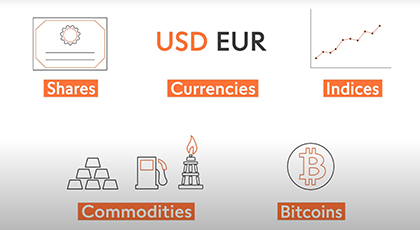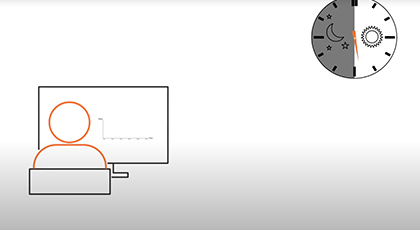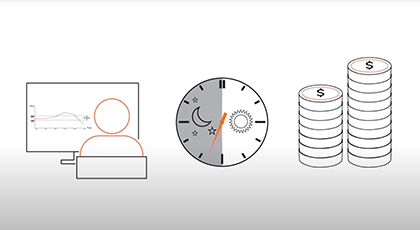2.3 CFD Pricing & Funding
Learn about the costs of trading CFDs and familiarize yourself with the notion of rollover and account funding by watching this video.
Complete this course
Script
Contracts for Difference exist for various asset classes. If you are comfortable with, for example, stock indices or commodities, CFDs can be a profitable addition to your portfolio. Contracts for Difference are quoted in the same currency as the underlying asset, and dealing hours are generally the same, sometimes even better. Since they derive from underlying assets, they are often more convenient to trade. For example, they carry no stamp duty. Since you do not own the underlying asset, you do not need to worry about storing tons of oil; and you can sell CFDs without owning any to begin with. When you trade CFDs, the broker’s fee is included in the spread between your purchase and sales price. Besides the spread, CFD trading only incurs costs if you keep positions open overnight: after the close of trading, your position is closed and reopened, or “rolled over”. In addition, your trading account will be adjusted depending on the underlying asset and whether you have bought or sold contracts. For example, if you have bought CFDs based on a stock index like the S&P 500, you will receive dividends. You will also pay interest that corresponds to the rollover fee to maintain your position overnight. For this reason, it is important to ensure that you have funds in your trading account to cover rollover rates and any cash adjustments. This is particularly important if you are trading on margin, that is, leveraging the funds in your account to command large positions.



